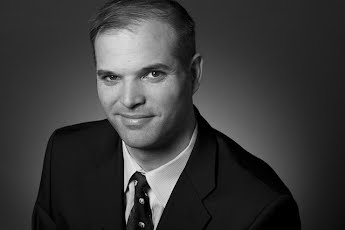On Ohio and oregano

From a reportorial standpoint, I'm completely in awe of Matt Taibbi and his fearlessness. He writes for the typically liberal Rolling Stone, but he personally never comes off as left or right-- he's just fiercely anti-corruption. His beat at RS for the past few years has been Wall Street, which has obviously led to lots of interesting articles. Whether you agree with him or not, the man has cajones and he's exhilarating to read.
For a primer on Taibbi's style and outlook, you should watch Amy Goodman's recent video interview with him. In it, he compares Ohio's current governor to the kind of drug dealer who swaps in oregano for weed. He says this intelligently, calmly, on television, wearing a suit, not blinking an eye-- and it totally makes sense in the context he's presented. I'm telling you, the guy has a gift.
I've transcribed some of the best of it below, but you should watch the video yourself, if only for the rare opportunity to see an on-air reporter like Amy Goodman: A beautiful, smart woman who is apparently aging naturally, gray hair and all.
MATT TAIBBI: Just to back up, you know, provide some context for this Wisconsin thing, and especially for the Ohio thing, given, you know, what their governor [John Kasich] used to do for a living.
AMY GOODMAN: Explain.
TAIBBI: Well, he was an employee for Lehman Brothers, and he was—
GOODMAN: This is Governor Kasich.
TAIBBI: Governor Kasich. And he was intimately involved with getting the state of Ohio's pension fund to invest in Lehman Brothers and buy mortgage-backed securities. And of course they lost all that money [after Lehman went bankrupt in September 2008 and the subsequent collapse of the housing market].
...But what they're doing now is they're blaming the people who are collecting the pensions. They're blaming the workers, they're blaming the firemen, they're blaming the policemen. In reality, they were actually the victims of this fraud scheme.
The only reason people aren't angrier about this, I think, is because they don't really understand what happened. If these were car companies that had sold a trillion dollars worth of defective cars to citizens of the United States, there would be riots right now. But these were mortgage backed securities, it's complicated, people don't understand it, and they're only now I think beginning to realize they've been defrauded.
The broad crime in all of this was just fraud. These banks... took this stuff that they knew was very, very risky and very, very likely to default, and they were going to the State of Wisconsin, the State of Ohio, the State of New York, and saying, 'Hey, this is as safe as United States treasury bonds. You should buy this, and you'll earn a little bit more than you'll earn with t-bills.' The reality is, they were taking absolutely worthless stuff and sticking it with these people and then fleeing the scene.
This is no different than drug dealers who take a bag of oregano and sell it to you as, you know, a pound of weed. That's exactly the same scam.
Mars and Venus in interviews
"Well, first off, don't interview a guy if a woman is available. Guys don't notice anything. I probably asked twenty of DiMaggio's teammates about the party after the 1947 World Series at the Waldorf-Astoria. And they'd say, 'Aw it was great! There was a band and everything was first-class. Joe was real happy that night!'
Then I'd ask one of their wives to describe the party. And she'd say, 'Yes, it was a wonderful party. But the flowers were dreadful. And the food was late. And Phil Risutto's mother came in wearing the oddest hat...'
They know everything. Guys are hopeless."
--from the chapter on Richard Ben Cramer in The New New Journalism, in which top-notch nonfiction writers are interviewed about their work habits. I bought it last week for $6 on the discount shelf at Dog Eared Books, and it's been a pretty good read! It's kind of like Coders at Work for journalists.
I've definitely found there are differences in what men and women tend to remember, but I wouldn't say that one gender is better to interview than the other-- the information you get is just different. I've been exasperated at my husband many a time when trying to get details on something emotional or interpersonal ("They broke up? What happened? Well, what did he say? You didn't ask?") but he's amazing at remembering, say, how many miles per gallon his car could get in high school.
It's not surprising that women would have the dirt on what a party was really like-- but I bet every one of those men interviewed could remember the final scores of all seven games of that year's World Series, and lots of them could still give a pretty mean play-by-play.
Then I'd ask one of their wives to describe the party. And she'd say, 'Yes, it was a wonderful party. But the flowers were dreadful. And the food was late. And Phil Risutto's mother came in wearing the oddest hat...'
They know everything. Guys are hopeless."
--from the chapter on Richard Ben Cramer in The New New Journalism, in which top-notch nonfiction writers are interviewed about their work habits. I bought it last week for $6 on the discount shelf at Dog Eared Books, and it's been a pretty good read! It's kind of like Coders at Work for journalists.
I've definitely found there are differences in what men and women tend to remember, but I wouldn't say that one gender is better to interview than the other-- the information you get is just different. I've been exasperated at my husband many a time when trying to get details on something emotional or interpersonal ("They broke up? What happened? Well, what did he say? You didn't ask?") but he's amazing at remembering, say, how many miles per gallon his car could get in high school.
It's not surprising that women would have the dirt on what a party was really like-- but I bet every one of those men interviewed could remember the final scores of all seven games of that year's World Series, and lots of them could still give a pretty mean play-by-play.
On Journalism
"Then Assange leaned forward and, in a whisper, began to talk about a leak, code-named Project G, that he is developing in another secret location. He promised that it would be news, and I saw in him the same mixture of seriousness and amusement, devilishness and intensity that he had displayed [while working on a previous leaked story].
'If it feels a little bit like we're amateurs, it is because we are,' he said. 'Everyone is an amateur in this business.'"
--from a profile of Julian Assange, who directs the document-leaking news organization WikiLeaks, in this week's New Yorker
'If it feels a little bit like we're amateurs, it is because we are,' he said. 'Everyone is an amateur in this business.'"
--from a profile of Julian Assange, who directs the document-leaking news organization WikiLeaks, in this week's New Yorker
Media parties and the vodka fizz

A lot of what New York Times reporter David Carr says in this interview about the state of the media is so true it's kind of sad. I saw some of the extravagance he mentions in my first amazing journalism gig in New York (at a magazine which has, incidentally, since folded.) I remember consciously trying to savor every fancy dinner, town car and nice hotel room, since for me, an entry-level 20-year-old, it all didn't really make sense.
But even when you know deep down that something is too good to be true, it's still upsetting when the inevitable end comes. It's starting to set in that the past 15 years have been an unsustainable anomaly for not just finance, but a lot of other industries too.
A particularly relevant excerpt of Carr's real talk:
"I think one thing that people do not understand is, as recently as four or five years ago, to be a member of Manhattan media, you weren't rich, but you lived as a rich person might. You went to the parties that a rich person would go to, you ate the food that a rich person would eat, you drank the vodka that a rich person would drink, and you'd end up in black cars, and you'd end up sometimes on boats and in helicopters.
"We lived as kings, and it convinced us, I think, that there was a significant underlying value to what we did. And I think we're finding out now that the real, actual value of journalism in the current economy is not that high."